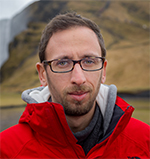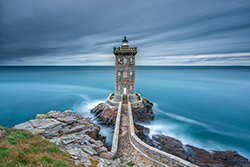
|
|
|||||
|
Featured Photographer, July 2017: Francesco Gola
We are happy to have Francesco Gola as our featured guest photographer this month. We appreciate that he gave us some of his time and generously shared his beautiful photography with us! Please visit his links to see more of his work, and to let him know you enjoyed this interview. :: How did you get your start with Photography, specifically landscape and outdoor photography? It all started when I’ve been moved to La Spezia by the company I worked for, a beautiful sea town in the north-west of Italy. To be honest, I’ve always had a passion for photography, but it was only when I found myself having a lot of spare time that I could give vent to something that would have revealed itself like more than just a passion. I didn’t know anyone, and so, just to pass the time, I began to roam in the nature with the camera I purchased with my very first earnings. :: What about the sea draws you to make it one of your major subjects? I couldn’t really explain why the sea became my main subject, or maybe even an obsession, after all I was born and raised in the valley. I think I developed my love for the sea just right after I moved to La Spezia: after roaming for hours among the coastal paths, I always used to take a pause and sat on some cliff or beach, just to relax. Here, I stared at it, and got really enchanted about how it could be different in colors, scents and shapes every time. Over time, I’ve noticed that when I was in front of the sea, I did really manage to get relaxed and forget about every problem of my life, whether little or big. So it became sort of a shelter for my soul, and so, over time, it’s been really natural for me to instill this inner peace feeling inside my pictures. :: In another article you mention that you choose not to do any exposure blending. Is this still the case? If so, why? What advantages artistically or technically do you think you gain by not working in this way? Yes, every picture, now as then, is the outcome of a single exposure. I would say there are multiple reasons for this. The first one, is obviously that I’m not really friends with Photoshop. Well, I wouldn’t really be able to apply pretty complex post-production techniques like luminosity masks or anything else. The second reason, and I think the most important, is that I basically mostly enjoy staying “in the field” rather than behind my computer’s monitor carrying out post-production. I prefer enjoying nature and fighting for my shot, even if I’ll fail because the light was not the right one. Enjoying the experience on the field, to me, is worth more than any picture: there are those who don’t really concern about inventing unreal lights or coloring sunsets that weren’t there before. I definitely prefer to come back ten times on the same place, if needed. :: What is the most challenging part about photography for you today as opposed to when you started? I’d say that, at first, shooting was easier, since I had fewer personal pretensions. But, as time went on, I’ve tried to pay more and more attention to details, so much so that I got obsessed by them: the search for the millimetric composition, the chromatic matchings, the sharpness, the shot planning…there was nothing of this when I started, or I didn’t feel like I needed it anyway. Now, I’m kind of addicted to it. Surely, anyway, I think the external environment (social networks, forums, contests…) has not influenced me or pushed me in a sort of competition with other photographers: I shoot for myself, not for the others. If this will ever change, then I’ll quit with photography. :: The world of landscape photography in the US seems to be pretty competitive and sometimes not in the best way. How is the scene in Europe? If you find things to be similar (or worse) in terms of attitudes…what can be done to improve this for the genre? I wouldn’t really say the situation in Europe is better…quite the opposite. Unfortunately, since the use of advanced editing tools got within everyone’s reach, the only real goal, by now, is sensationalism, rather than the shot itself. Now what really matters is the “wow” effect, and to obtain it, some photographers don’t really concern about “going beyond”: inserting sunset colors that were not there before, joining expositions from different days, adding unreal glows, modifying the landscape’s orography just to make it more charming. They would do everything to win a contest, no scruples whatsoever. Anyway, I’m not saying Photoshop is the world’s evil, and my pictures are, I think (and hope), the farthest thing possible from the objective representation of reality. But getting the highest number of Likes (or equivalents) on several social platforms should not become the final goal. When photography will be a soul searching tool like it was before, then the landscape photography will be something really sensational again. :: What’s the scariest thing that has happened to you while on a shoot? It was the last day of a wonderful solitary trip in Scotland. The “hunt” went pretty good and, as last shooting place, I decided to come back to the amazing Neist Point on the Skye island, to shoot the sunset. Once everything was set up, I began to shoot, but right after the first shot, a memory card error appeared: actually, it seemed it got irremediably damaged. Panic. The fact is that, at that time, I didn’t really care that much about these details and actually, the work of the whole trip was on that card: obviously, I had not thought about a backup before. Fortunately, once at home I got to recover everything, but since that day I only shoot with in-tandem double memory card (in this way, the shot gets saved on both the memory cards at the same time) and during trips I perform backups on my computer every night, before I go to bed! :: Are there any creative exercises (not like sit-ups) you do while preparing for a shoot to help you find the best in a location? I do really believe in planning, and that once we get to the shooting location, we should spend some time refining a composition we’ve got in our mind, rather than looking for places we could also find from home. The best exercise you could do is called Google Earth: thanks to satellite photographs, which today can reach an incredible detail level, we can actually explore whole areas even before we leave home. By combining these virtual explorations with the information about the sun position and the movements of the tides, once I get to the shooting location I can really focus on refining the details only. :: What is your favorite piece of non-photographic gear and why? My watch. It reminds of my home and my family. The journey home is always the most beautiful one, even when you do it just with your mind. :: When it comes to the technical side of photography what is the one piece of equipment or technology you think people put way too much importance on? What about the one that you probably think is far more important than most people realize? Well, of course when a new camera body gets released there’s always some hype. But often, we’re just tempted by our desire to get the latest model. Not always the latest model is the one we really need. For example, I shoot with a D810, which is getting pretty old by now. Why? It’s simple: I don’t really know what to do with 4K videos or built-in GPS. For me, the most important feature on a camera is its Dynamic Range, therefore I focus on that only. You’d better opt for some good lens, rather than chasing the latest body camera models, and that’s often something underrated. Having the best sensor available on the market will be useless if, the light will hit it through a mediocre quality lens: you can’t get sharpness in post-production. :: In articles you’ve written, and other interviews you always seem to mention music a great deal…how does music help with the creativity? I think music is the doorway to my world. When I’m in front of some amazing nature set, I can’t find anything better than putting my earphones on and listen to some tracks by Ludovico Einaudi. It’s like it allows the emotions, the feelings and the thought to mix with each other and talk to the Soul. It seems to be something so abstract and smoky, but it’s thanks to music that everything in front of me suddenly becomes clear. :: You’ve also mentioned several times about learning to see with different or new eyes. What steps can one take to start to work on this aspect of photography? The first and very important step to make is, definitely, not trying to imitate other photographers’ styles in your photographs. It’s one thing for us to get inspired and to put interest in other’s realization techniques, but if we try to copy other famous photographers’ shots, then we only obstruct our inner voice. Let’s question about ourselves instead of what other photographers would have done. What does the landscape we’re looking at rouses inside us? Why are we so attracted by it? By answering these questions, we’ll understand that what’s in front of us isn’t just a simple landscape anymore, and then we’ll only have to explain our camera what to look at. :: You use photography as a way to escape and to unplug from life…does the popularity of the medium, and the new wave of photographers coming onto the scene, crowding areas, and doing what you love take any of the joy out it? As I’ve said before, I shoot for myself. Of course, I’m a human being, and so I’m really happy when my work gets appreciated, but I’m not interested in competition, definitely not. As long as my delight will be linked with every moment experiences on the field and not with the amount of Likes received on Facebook, nothing can upset me, not even those who reduce the landscape photography to something like a cheap workshop where people learn about how to paste random glows and paint sunsets. :: What’s the best way you’ve learned to keep sea spray off a lens? Sea sprays are something really annoying: once on the lens, often, by trying to remove them we just make it worse. Unfortunately, as far as I can tell, there’s no lens designed for the issue. My advantage is that, since I use photographic filters, the lens is always protected actually. This way, it becomes a filters’ problem, but fortunately there’s a solution in this case. After several years spent using filters of the most different brands, I’ve finally found the ones manufactured by NiSi Filters that, besides having an absolute optical quality, are equipped with an hydrophobic coating to let water slip away. Now, I only have to slightly blow on the filter and the water slides away, or when I clean it with a cloth, anyway, the water immediately moves away and doesn’t really leave any stain. :: What place or places are you currently striving to photograph? The list is getting longer and longer, because I’m really discovering new places that I’d love to visit with my camera, day by day. I’m a “arctic sea” lover, therefore the first names of the list are the Lofoten Islands in Norway and the Faroe Islands. To be honest, I’ve got a forbidden dream: the Antarctica. I think this would not be just a photographic journey, but an actual meditation experience. But sometimes journeys are just like wine: you need to wait for the right moment to enjoy them at best. :: How does social media play a role in your work? In your mind what are the pros and cons with this easily accessible format of sharing work? I believe that social media play a fundamental role in the photography career, nowadays, and they did in mine as well. This has both positive and negative consequences. The positive one, is that while before it was really difficult to get noticed, today by taking the maximum advantage from social platforms, you can get some really significant attention. I’m absolutely sure that without them, getting noticed by some important companies and agencies, would have been definitely impossible for me. The other side of the coin, unfortunately, is the background noise: since there are no entry barriers, everyone tries, and so you can’t take it for granted that even if you produce some interesting stuff, someone notices you in the crowd. I think there are two things to do: the first one is not to underrate the potentiality of social media: nowadays, you can’t afford to think that it will be the others coming towards you, but you have to reach them. The second one, is finding your own niche: having your own firm identity will allow you to offer something different, and getting out of the crowd will be easier. |
"Finding your own niche: having your own firm identity will allow you to offer something different, and getting out of the crowd will be easier..."
Photographer Spotlight Interviews
|
|
 |
Other Cool Stuff→ Past Workshop Photos → 72dpi.com → How-To Articles → Photographer of the Month |
 |
Contact Us→ Contact Us → About Us → Site Map |
© 2009-2024 Aperture Academy, Inc.











